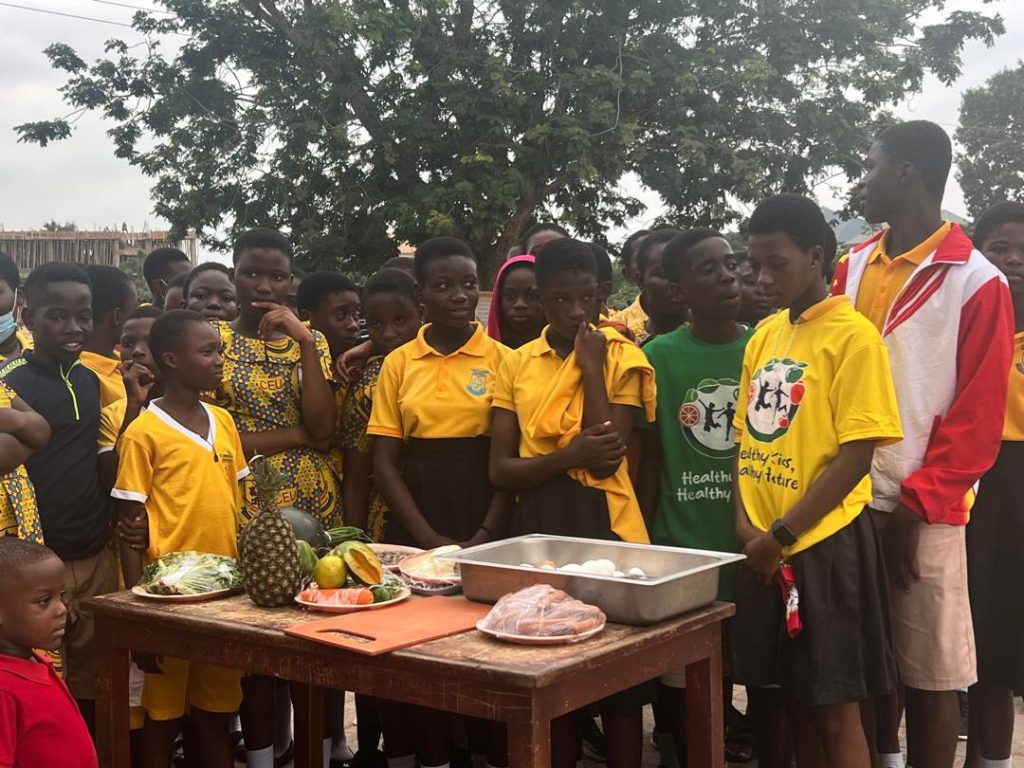By Linda Naa Deide Aryeetey, GNA
Accra, June 14, GNA – Hope for Future Generations (HFFG), a non-governmental organisation with focus on health and youth development, Friday engaged pupils of St Dominic Catholic School in Accra on the need to adopt healthy eating habits and be physically active for at least 60 minutes every day.
The talk of demonstration on healthy living forms part of the HFFG’s campaign to prevent Non-Communicable Disease (NCD) among pupils project for school children in class six to Junior High Schools.
With funding from the Denish Youth Council (DUF), the project seeks to create awareness and reduce the incidence of NCDs among school children.
Ms. Emmanuella Kwamee, a Project Manager at HFFG, said the Preventing NCDs project was necessitated by the need to encourage children to include fruits and vegetables in their meals every day.
“We are doing this to teach the children how to protect themselves from NCDs and have a healthy future,” she said
Ms. Kwamee said about 300 skipping ropes and water bottles were donated to the pupils to encourage them to drink more water while keeping physically active.
At St Dominic Catholic School, a healthy meal preparation demonstration exercise was held to teach the pupils how to cook balanced and healthy meals.
Sedenam Kahlan, a 13-year-old JHS pupil at the School said: “Usually, I drink tea at home in the morning, eat fried rice at school and take in yogurt and sobolo during break time,” adding that she would now add fruits and vegetables to her meals.

Gloria Boateng, another pupil of the School, said she also ate Spaghetti, soft drink, ice cream and candies almost every day at school and said she would reconsider her meals and eat healthily.
Non-Communicable Diseases (NCDs), also known as chronic diseases, are of long duration and are the result of a combination of genetic, physiological, environmental and behavioral factors.
While they are often associated with adulthood, NCDs have a significant impact on children and adolescents across the life course.
GNA